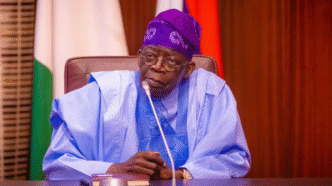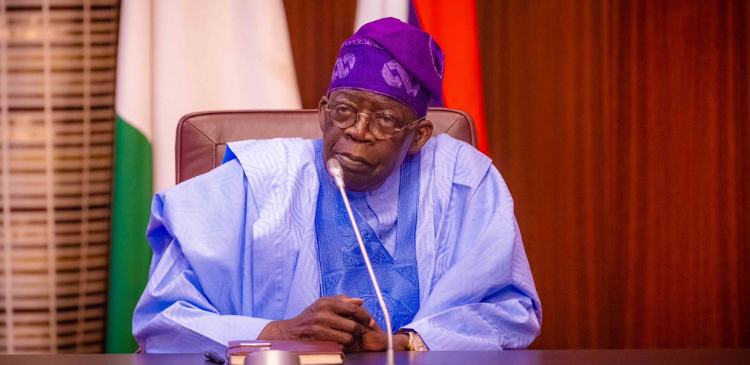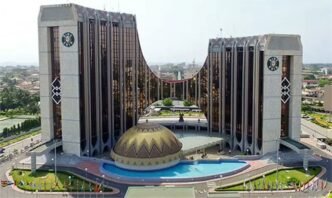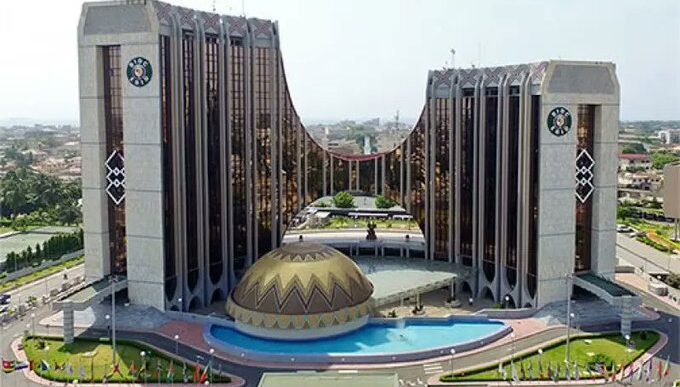President Bola Ahmed Tinubu on Wednesday declared that Nigeria has turned the corner from its most difficult period, assuring citizens that the country’s “worst days are over.”
In a national broadcast to commemorate Nigeria’s 65th Independence anniversary, the president said the economic reforms introduced since he assumed office in May 2023 are beginning to yield tangible results. He insisted that his administration chose the harder path of restructuring today’s challenges in order to secure a stronger and more prosperous tomorrow.
“I am pleased to report that we have finally turned the corner. The worst is over, I say. Hope is rising, and Nigeria is on the path of renewal,” Tinubu said in his address.
The broadcast, delivered against the backdrop of widespread hardship, inflation, and public skepticism, was aimed at reassuring Nigerians that sacrifices made in recent months were not in vain.
A Message of Hope Amid Hardship
Tinubu’s Independence Day speech was both reflective and forward-looking. Acknowledging the struggles that Nigerians have endured since the removal of fuel subsidies and the floating of the naira, he emphasized that short-term pain is giving way to long-term progress.
He argued that his reforms were necessary to stabilize the economy and reposition Nigeria as a globally competitive nation.
“Since May 2023, we have chosen the path of tomorrow over the comfort of today. We have dismantled unsustainable policies and replaced them with reforms that will stand the test of time. This is not politics—it is nation-building,” Tinubu declared.
For many Nigerians, the past two years have been marked by steep rises in the cost of living, increased transportation fares, and declining purchasing power. Tinubu’s message sought to counter despair with optimism, framing the current struggles as the birth pangs of a more resilient economy.
Economic Reforms: What Has Changed?
The Tinubu administration has made economic reform the centerpiece of its governance agenda. Two key policies have dominated the national conversation since 2023:
- Fuel Subsidy Removal – Within hours of taking office, Tinubu announced the removal of the decades-long fuel subsidy, which the government said had drained public finances and encouraged corruption. The decision led to an immediate surge in fuel prices, sparking protests but freeing up billions of naira for government spending on infrastructure and social programs.
- Naira Float and Forex Reform – By unifying the multiple foreign exchange rates, the Central Bank under Tinubu sought to curb arbitrage and restore investor confidence. The move initially triggered a sharp depreciation of the naira, fueling inflation, but government officials now insist that the policy is stabilizing and attracting foreign capital inflows.
Beyond these headline reforms, the administration has rolled out policies to boost agriculture, revamp power supply, support small businesses, and attract foreign investment. Tinubu claimed that the positive impact of these initiatives is gradually becoming visible in increased revenue, improved investor interest, and better fiscal stability.
“The Corner Has Been Turned”
In his broadcast, Tinubu highlighted signs of progress, saying Nigeria’s economy is slowly regaining balance despite global headwinds.
“There is no denying the hardship. But there is also no denying the progress. Our revenues are growing. Our foreign reserves are strengthening. And our productive sectors are awakening. The corner has been turned,” he said.
He credited Nigerians for their resilience, describing the sacrifices made by ordinary citizens as the foundation of national renewal.
The president also urged citizens to remain patient, assuring them that government programs—such as palliatives, youth empowerment schemes, and agricultural reforms—will soon bring relief.
Public Reaction: Mixed Optimism and Skepticism
The president’s declaration that “the worst days are over” has generated mixed reactions among citizens, economists, and political analysts.
On the streets of Lagos and Abuja, some Nigerians welcomed Tinubu’s optimism, expressing hope that prices of food, fuel, and transportation will begin to ease.
Chinedu Okeke, a trader in Abuja, said:
“We have suffered a lot since subsidy was removed. But if the president is right and things will get better soon, then we are ready to endure. What we need is proof that our lives will improve.”
However, critics argue that the president’s assurances may be premature, pointing to rising inflation, insecurity, and high unemployment.
Dr. Ifeoma Uche, an economist at the University of Lagos, noted:
“The claim that Nigeria has turned the corner is aspirational, but the reality is more complex. Inflation is still in double digits, unemployment remains high, and foreign investment is modest. The government needs to demonstrate results with clear data, not just rhetoric.”
Independence Anniversary: A Time for Reflection
Tinubu’s message was also steeped in the symbolism of Independence Day. Sixty-five years after Nigeria gained freedom from British colonial rule, the president framed his reforms as a continuation of the struggle for sovereignty—this time economic rather than political.
He said independence is not just about flags and ceremonies, but about the ability of Nigerians to shape their destiny and secure prosperity for future generations.
“Our forefathers fought for political independence in 1960. Our task today is to achieve economic independence. That is the true measure of our sovereignty,” Tinubu stated.
The Road Ahead
The Tinubu administration faces significant challenges in translating reforms into visible improvement in the lives of ordinary Nigerians.
Key issues include:
- Inflation and Cost of Living: Prices of food and essentials remain high, straining households.
- Security Concerns: Persistent banditry, kidnappings, and insurgency continue to undermine stability.
- Healthcare and Education: Public services remain underfunded, with doctors, teachers, and other professionals frequently threatening strikes.
- Youth Unemployment: Millions of young Nigerians remain jobless despite government promises of empowerment programs.
Analysts say success will depend on consistent implementation of reforms, curbing corruption, and ensuring that savings from subsidy removal are reinvested transparently.
Tinubu’s Leadership Style
Since taking office, Tinubu has projected himself as a reformer willing to make tough decisions. His supporters argue that unlike previous administrations, he has confronted Nigeria’s economic distortions head-on.
However, opponents accuse him of inflicting hardship without adequate cushioning measures. They argue that palliatives have been slow and insufficient, leaving millions struggling.
Political observers believe his Independence Day speech was as much about shoring up public confidence as it was about outlining progress.
Conclusion: A Turning Point or More Rhetoric?
President Bola Tinubu’s declaration that “Nigeria’s worst days are over” will resonate differently among Nigerians depending on their experiences. For some, it is a message of much-needed hope on a symbolic day. For others, it raises skepticism about whether the administration’s promises can be matched by real improvements in living conditions.
What is clear is that Nigeria stands at a crossroads. As the nation marks 65 years of independence, the success or failure of Tinubu’s reforms will define not just his presidency but the future trajectory of Africa’s most populous country.
The coming months will reveal whether the country has indeed turned the corner—or whether the worst is still ahead.














